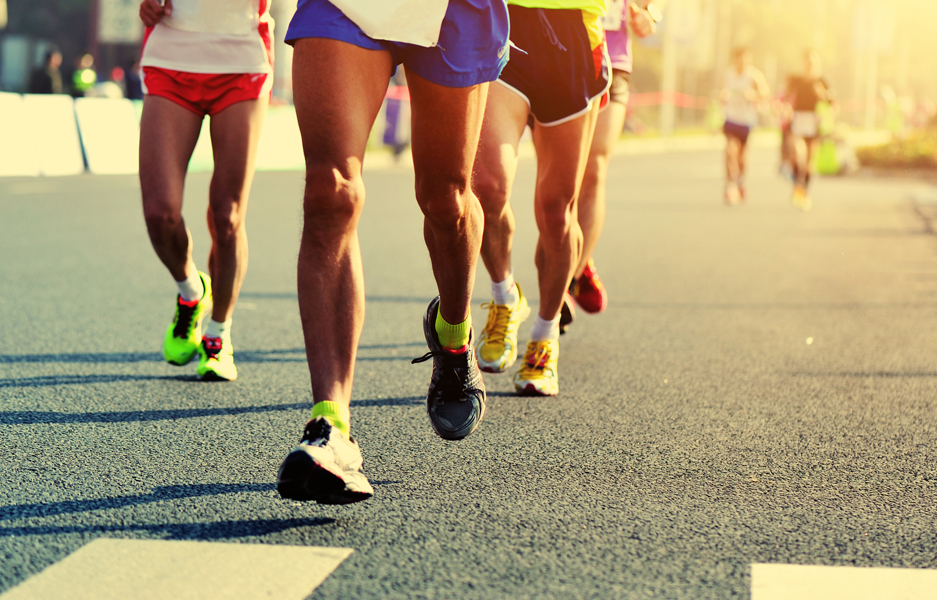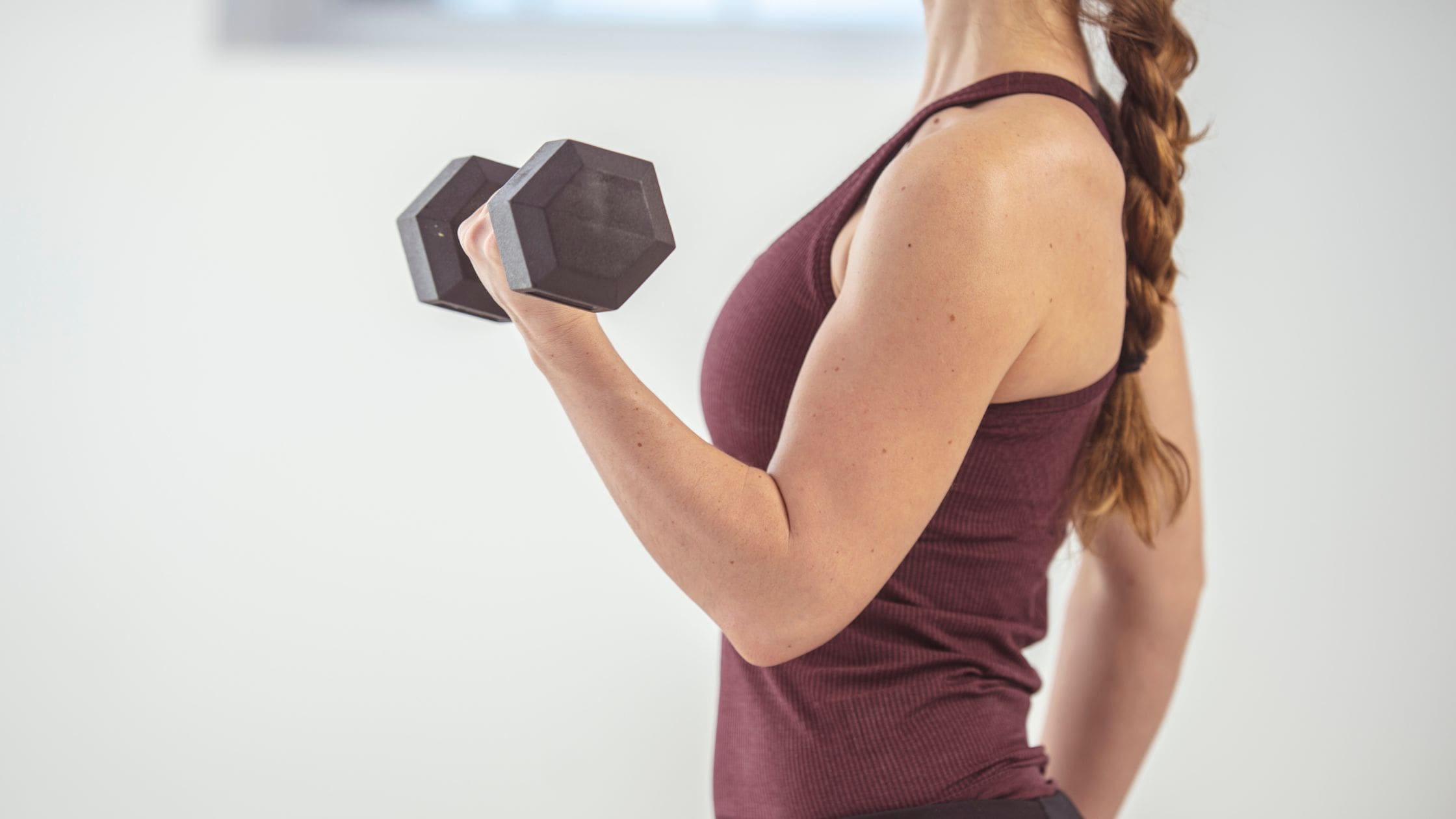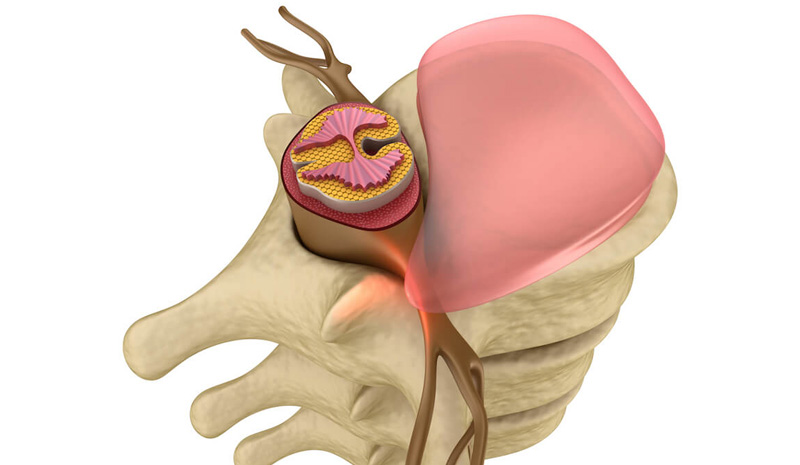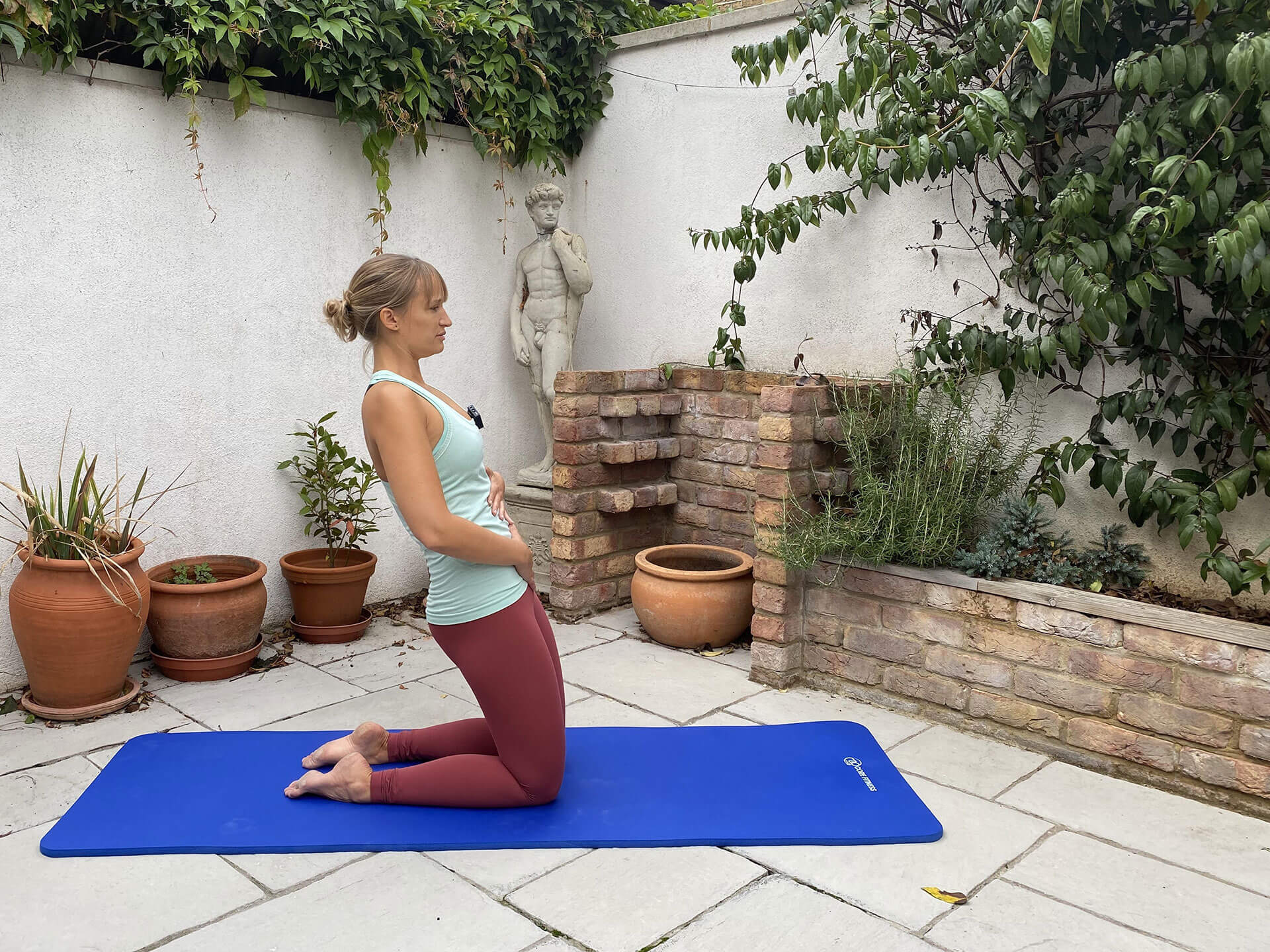Top tips for marathon runners
Your next marathon is approaching fast.
And, after months of careful planning, training and monitoring your progress, knowing that the end is in sight is probably met with a mixture of excitement and relief.
You’ve sacrificed your social life in the name of early nights and mornings spent getting miles under your belt. After-work drinks have long since been replaced with after-work runs.
But now is – almost – the time to put all that hard work to good use.
To support you over that finish line, we’ve put together some last-minute top tips with the help of Chris Myers of Complete Physio. A physiotherapist, osteopath and marathon runner.
We might not be able to replicate the months spent dedicated to training in the space of a few days (and hopefully we don’t need to).
But, regardless of whether you’re a seasoned pro at running those 26 miles, or totally new to the marathon experience, these expert top tips for marathon runners will hopefully make running a little bit more manageable – and maybe even more enjoyable – although sadly, we don’t have a miracle cure for blisters.
Our 8 Last minute marathon tips:
1. Stick to what you know
The mantra for you to follow in the week leading up to the marathon is: “stick with what you know”.
If you regularly go to bed at 10 pm at night then keep doing that. Don’t change your routine in the days before the marathon as this could be disruptive.
The period leading up to the race is also not the time to try new shoes, a new hydration drink, or even a new outfit. If it hasn’t been tried and tested over months of training – don’t do it!
It is also all too easy to get tempted to take the gels or drinks on offer from race sponsors on the day, with the hope of gaining some extra energy for the race. But some of these can have a powerful (and unpleasant) effect on your digestive system. Instead, keep using the energy supplements your body is used to – and save yourself those sprints to the portaloos.
If warm weather is forecast for your marathon event, you might be tempted to wear cooler clothing.. However, if you’ve trained in joggers or leggings, wear those on the day rather than shorts.
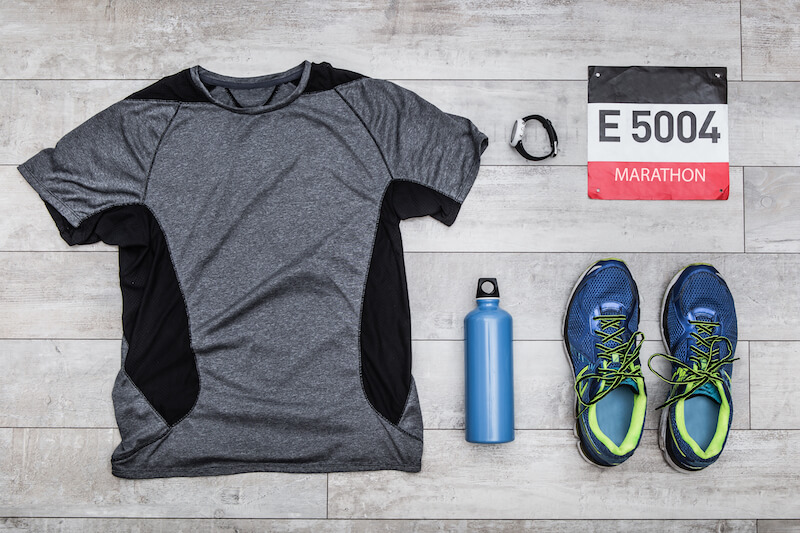
Cooler legs might not be worth the painful chafing inner thighs!
2. Relax
There is absolutely no benefit to training hard the week before the race. It won’t negatively impact your training if you don’t, and you will just exhaust yourself for the race.
The hard work is already done by now and hopefully, you’ve clocked up all the miles necessary. Now it is time to rest your body in preparation for the big day. So, whilst it’s important to keep your mind busy and go about your normal routine (to avoid stressing about the 26 miles to come), it is also advisable to stay off your feet whenever possible to rest your legs.
Your mindset is also important when it comes to maintaining a relaxed attitude. At this point, it is also helpful to remember that everyone’s training plan is unique, as is their taper – so don’t compare yourself to others. What is important is that you stick to your training plan, whilst also making plenty of time to relax.
The latter is vital given the strain the marathon training process puts on the nervous system and immune systems. Because of this, prioritising relaxation – for mind and body – is just as beneficial as time spent physically preparing for the race.
Keeping anxiety at bay
At the same time, we understand that keeping anxiety at bay can be difficult with the race on the horizon. A good book or board game might be your perfect way to relax. We also suggest practising some deep-breathing to soothe that over-stimulated nervous system.
To try it, inhale deeply, fill your lungs with air and allow your ribs to move out in all directions: to the side, the back and the front. Then, let the air out slowly on the exhale as your ribs come back together. And repeat.
This style of breathing can encourage you to stay calm in the lead up to the big day. And it can be useful during the race itself, as good breathing habits can also help you avoid the dreaded runner’s stitch.
3. Keep Anxiety at bay
At the same time, we understand that keeping anxiety at bay can be difficult with the race on the horizon. A good book or board game might be your perfect way to relax. We also suggest practising some deep breathing to soothe that overstimulated nervous system.
To try it, inhale deeply, fill your lungs with air and allow your ribs to move out in all directions: to the side, the back and the front. Then, let the air out slowly on the exhale as your ribs come back together. And repeat.
This style of breathing can encourage you to stay calm in the lead up to the big day. And it can be useful during the race itself, as good breathing habits can also help you avoid the dreaded runner’s stitch.
4. Get enough sleep
Sleep is essential for running a marathon. But it is normal to feel anxiety and excitement the night before the race, which may make it difficult to sleep.
Our advice is just to make sure that you’ve slept well in the days leading up to it, so that you feel rested no matter what the night before brings.
Our suggestions for a good night’s sleep include:
- Have a bath 30 minutes before you want to go to sleep. The drop in body temperature when you leave the warm water and move into a cooler room (like your bedroom) tells your body that it’s time to rest.
- Avoid phones and laptops last thing at night. Research has found that exposure to light at night disrupts our natural sleep rhythms. This is especially true of the blue light emitted by technology.
- Although we have suggested not to try anything new, it is never the wrong time to start meditating. A recent clinical trial showed that it can reduce sleep disturbances – so why not give it a go? It might just help you get a good pre-race sleep, despite the jitters.
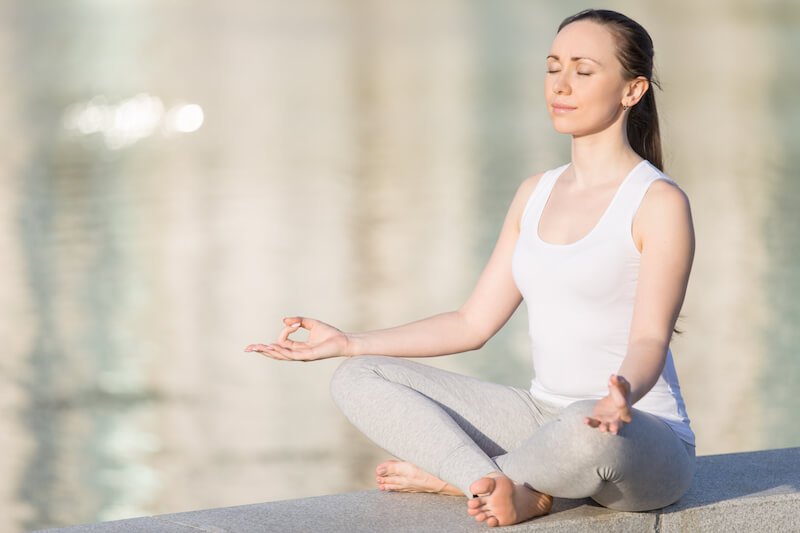
Not sure how to start? Using apps like Headspace and Calm, can be an easy way to learn.
5. Come Prepared
As the old saying goes; if you fail to prepare, you prepare to fail. Having prepared your body for the race, it can be a good idea to prepare mentally for it – and this can include doing a quick recce of the course.
To do so, we would advise that you run, walk, bike, or even drive a section of the race course.
Not only can this help calm first-marathon nerves and psychologically prepare you for what is to come but it can also help you to make a rough plan of how to tackle the route, taking into account changes in terrain, such as hills.
It is also pretty helpful – and reassuring – to know beforehand how frequent the water stops and porta-potties are!
6. Eat Up!
This is the time for the famous carb-loading. It is not, however, an excuse to eat anything and everything in sight.
Instead, you should be aiming to eat about 65-70% of your calories from carbs in the days leading up to your race.
And, whilst it might be tempting to cram as much food as you can the night before, it is also worth remembering the warning that too much “loading” can lead to “unloading” during the race.
So, don’t pile your plate high on race night. Instead, aim for smaller portions of the same healthy food you’ve enjoyed during that week. This way you won’t wake up feeling bloated or uncomfortable on the big day.
To help with digestion, it is also important to avoid carb-loading with high-fat foods such as French fries, crisps, doughnuts, buttery croissants, creamy pasta meals and cheesy pizzas. These can be hard for the body to process, and aren’t exactly the best source of energy!
We’d advise you to go for easily-digestible slow-release carbs. Foods such as porridge oats, basmati rice, pasta with tomato-based sauces, wholemeal toast and lots of fruit and vegetables are much more belly-friendly and will set you up with plenty of energy for the day of the race.

Again, now is not the time to change your diet. It is important that you stick to the foods that you’ve trained on and that your body is used to.
7. Enjoy it!
Our most important piece of advice is to try and enjoy the process of running the marathon as much as possible! It requires a huge amount of effort, determination and dedication to even reach this point, so congratulate yourself. Race day is when you get to put everything you’ve learnt over the past few months into action – and see what those legs are made of.
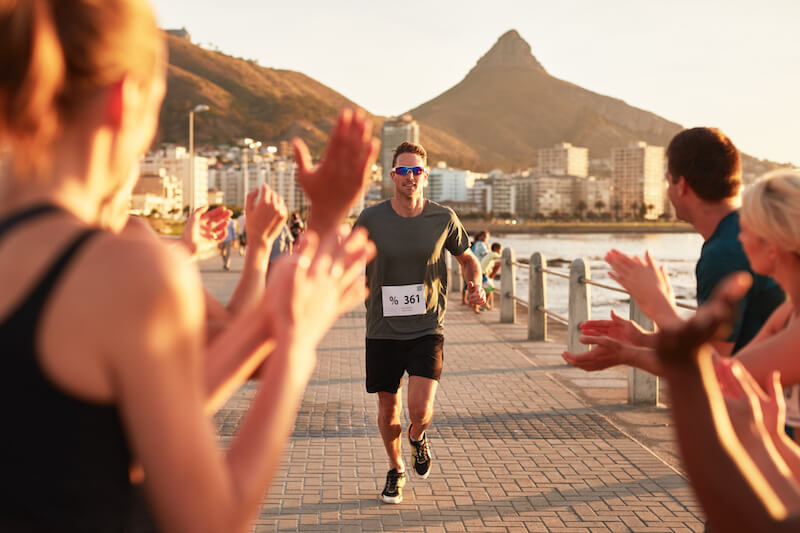
8. Think ahead to your post-workout recovery
Running a marathon is taxing on the body and it may take anything up to four weeks for the body tissues to recover. A break from running from anything to 1 – 2 weeks is recommended but that doesn’t mean you shouldn’t move. Low-intensity, gentle exercise is part of an active recovery strategy.
Pilates is a great choice for post-marathon active recovery so don’t forget to book your post-marathon Pilates session to help you recover.
Doing Pilates after a marathon can be beneficial for several reasons:
- It is low impact and low intensity: low impact means you can keep moving your joints but rest them from all that shock-absorbing activity. Low intensity means you are not taxing the body’s muscles, cardiovascular or immune system so much that you interfere with the repair process.
- Muscle recovery: the repetitive movements of Pilates can help promote blood circulation and aid in muscle recovery after the intense physical strain of running a marathon. The gentle movements in Pilates can alleviate muscle soreness and stiffness, facilitating a quicker recovery process.
Related Reading: Is Pilates good for running?
- Flexibility and mobility: After running a marathon, muscles may feel tight and fatigued. However, static stretching is not necessarily the best thing for recovering flexibility and doing these straight after the marathon could do more harm than good. Pilates exercises are dynamic and can be more gentle than stretching. The active movements can help alleviate post-marathon muscle tightness and improve overall mobility.
- Injury rehabilitation: Running a marathon can put a significant amount of stress on the joints and muscles and you may have injured yourself during the marathon or finish up with a few niggles that won’t go away. Doing Pilates with a rehabilitation professional such as a physiotherapist can help as part of your rehabilitation strategy.
- Mental relaxation: After completing a physically and mentally demanding event like a marathon, Pilates can help you transition to slower-paced activity. The focus on breathing and mindfulness during Pilates can help reduce stress and promote mental well-being.
Check back here next week for some post-marathon recovery tips.
These blogs are designed to give information to everyone, however, it is important to remember that everyone is different! If you have not seen one of our therapists and have any questions about injuries, what you have read or whether this may be useful to you, please just ask. We are more than happy to help anyone and point you in the right direction. Our biggest belief is that education is key. The more you understand about your injury, illness and movement, the more you are likely to improve.


